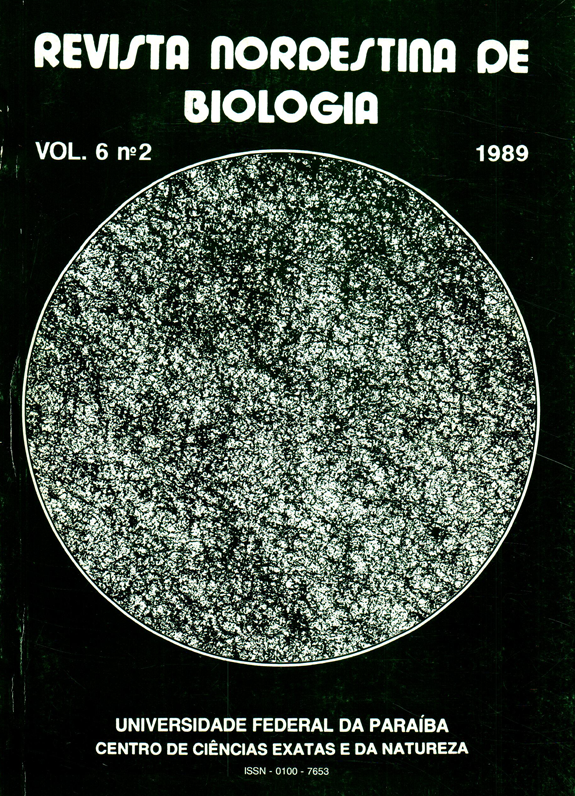ECOLOGIA E COMPORTAMENTO DE <i>ALOUATTA BELZEBUL</i> (PRIMATES: CEBIDAE) NA MATA ATLÂNTICA
Resumo
Ecological and behavioral observations of Aiouatta belzebul were made from February 1985 to April 1986 in a 271 ha patch of Atlantic forest at Pacatuba farm, 10 Km NE of Sapé state of Paraíba, Brazil. The home range of the group covered an area of 9,5 ha. Its size was evidently associated with food availability. Sleeping trees, two defecation sites and a large number of food trees were restricted to a core area. Travel routes were fixed in this area but the rest of the range was used in rotation. Instantaneous Scan Sampling was used to study the daily activity patterns. Seasonal variation of environmental conditions influenced these patterns. In this particular forest, howling monkeys are mainly frugivorous, possibly because fruits are available all year round. There is a seasonal variation in the diet. During the study A. belzebul fed on 47 plant species, being a seed disperser for at least 12 and possibly 21 species of fruits and a seed predator for at least five others.Downloads
Não há dados estatísticos.
Downloads
Edição
Seção
Artigos
Licença
Os originais aceitos e publicados tornam-se propriedade da Revista Nordestina de Biologia, sendo vedada sua reprodução total ou parcial, sem a devida autorização da Comissão Editorial, exceto para uso de estudo e pesquisa, desde que citada a fonte.



